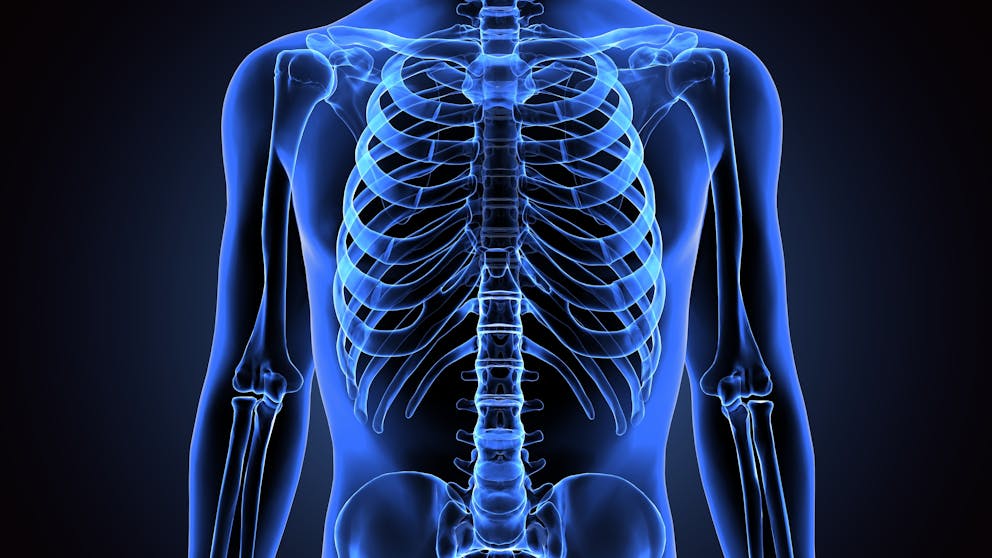Six Benefits of Taking Vitamin D3 with Vitamin K2 and Magnesium

Vitamin D – Benefits and Deficiency Warning Signs
Learn to recognize early signs of vitamin D deficiency
Discover how to maintain healthy vitamin D levels
Explore common factors that can contribute to vitamin D deficiency
Understand why vitamin D3 and K2 should always be taken together
Get practical advice on how to maximize the health benefits of vitamin D

Vitamin D – Benefits and Deficiency Warning Signs
Learn to recognize early signs of vitamin D deficiency
Discover how to maintain healthy vitamin D levels
Explore common factors that can contribute to vitamin D deficiency
Understand why vitamin D3 and K2 should always be taken together
Get practical advice on how to maximize the health benefits of vitamin D

Vitamin D – Benefits and Deficiency Warning Signs
Learn to recognize early signs of vitamin D deficiency
Discover how to maintain healthy vitamin D levels
Explore common factors that can contribute to vitamin D deficiency
Understand why vitamin D3 and K2 should always be taken together
Get practical advice on how to maximize the health benefits of vitamin D

Vitamin D – Benefits and Deficiency Warning Signs
Learn to recognize early signs of vitamin D deficiency
Discover how to maintain healthy vitamin D levels
Explore common factors that can contribute to vitamin D deficiency
Understand why vitamin D3 and K2 should always be taken together
Get practical advice on how to maximize the health benefits of vitamin D

Vitamin D – Benefits and Deficiency Warning Signs
Learn to recognize early signs of vitamin D deficiency
Discover how to maintain healthy vitamin D levels
Explore common factors that can contribute to vitamin D deficiency
Understand why vitamin D3 and K2 should always be taken together
Get practical advice on how to maximize the health benefits of vitamin D

Vitamin D – Benefits and Deficiency Warning Signs
Learn to recognize early signs of vitamin D deficiency
Discover how to maintain healthy vitamin D levels
Explore common factors that can contribute to vitamin D deficiency
Understand why vitamin D3 and K2 should always be taken together
Get practical advice on how to maximize the health benefits of vitamin D

Vitamin D – Benefits and Deficiency Warning Signs
Learn to recognize early signs of vitamin D deficiency
Discover how to maintain healthy vitamin D levels
Explore common factors that can contribute to vitamin D deficiency
Understand why vitamin D3 and K2 should always be taken together
Get practical advice on how to maximize the health benefits of vitamin D

Vitamin D – Benefits and Deficiency Warning Signs
Learn to recognize early signs of vitamin D deficiency
Discover how to maintain healthy vitamin D levels
Explore common factors that can contribute to vitamin D deficiency
Understand why vitamin D3 and K2 should always be taken together
Get practical advice on how to maximize the health benefits of vitamin D

Vitamin D – Benefits and Deficiency Warning Signs
Learn to recognize early signs of vitamin D deficiency
Discover how to maintain healthy vitamin D levels
Explore common factors that can contribute to vitamin D deficiency
Understand why vitamin D3 and K2 should always be taken together
Get practical advice on how to maximize the health benefits of vitamin D

Vitamin D – Benefits and Deficiency Warning Signs
Learn to recognize early signs of vitamin D deficiency
Discover how to maintain healthy vitamin D levels
Explore common factors that can contribute to vitamin D deficiency
Understand why vitamin D3 and K2 should always be taken together
Get practical advice on how to maximize the health benefits of vitamin D

Vitamin D – Benefits and Deficiency Warning Signs
Learn to recognize early signs of vitamin D deficiency
Discover how to maintain healthy vitamin D levels
Explore common factors that can contribute to vitamin D deficiency
Understand why vitamin D3 and K2 should always be taken together
Get practical advice on how to maximize the health benefits of vitamin D

Vitamin D – Benefits and Deficiency Warning Signs
Learn to recognize early signs of vitamin D deficiency
Discover how to maintain healthy vitamin D levels
Explore common factors that can contribute to vitamin D deficiency
Understand why vitamin D3 and K2 should always be taken together
Get practical advice on how to maximize the health benefits of vitamin D

Vitamin D – Benefits and Deficiency Warning Signs
Learn to recognize early signs of vitamin D deficiency
Discover how to maintain healthy vitamin D levels
Explore common factors that can contribute to vitamin D deficiency
Understand why vitamin D3 and K2 should always be taken together
Get practical advice on how to maximize the health benefits of vitamin D

Vitamin D – Benefits and Deficiency Warning Signs
Learn to recognize early signs of vitamin D deficiency
Discover how to maintain healthy vitamin D levels
Explore common factors that can contribute to vitamin D deficiency
Understand why vitamin D3 and K2 should always be taken together
Get practical advice on how to maximize the health benefits of vitamin D

Vitamin D – Benefits and Deficiency Warning Signs
Learn to recognize early signs of vitamin D deficiency
Discover how to maintain healthy vitamin D levels
Explore common factors that can contribute to vitamin D deficiency
Understand why vitamin D3 and K2 should always be taken together
Get practical advice on how to maximize the health benefits of vitamin D

Vitamin D – Benefits and Deficiency Warning Signs
Learn to recognize early signs of vitamin D deficiency
Discover how to maintain healthy vitamin D levels
Explore common factors that can contribute to vitamin D deficiency
Understand why vitamin D3 and K2 should always be taken together
Get practical advice on how to maximize the health benefits of vitamin D

Vitamin D – Benefits and Deficiency Warning Signs
Learn to recognize early signs of vitamin D deficiency
Discover how to maintain healthy vitamin D levels
Explore common factors that can contribute to vitamin D deficiency
Understand why vitamin D3 and K2 should always be taken together
Get practical advice on how to maximize the health benefits of vitamin D

Vitamin D – Benefits and Deficiency Warning Signs
Learn to recognize early signs of vitamin D deficiency
Discover how to maintain healthy vitamin D levels
Explore common factors that can contribute to vitamin D deficiency
Understand why vitamin D3 and K2 should always be taken together
Get practical advice on how to maximize the health benefits of vitamin D

Vitamin D – Benefits and Deficiency Warning Signs
Learn to recognize early signs of vitamin D deficiency
Discover how to maintain healthy vitamin D levels
Explore common factors that can contribute to vitamin D deficiency
Understand why vitamin D3 and K2 should always be taken together
Get practical advice on how to maximize the health benefits of vitamin D

Vitamin D – Benefits and Deficiency Warning Signs
Learn to recognize early signs of vitamin D deficiency
Discover how to maintain healthy vitamin D levels
Explore common factors that can contribute to vitamin D deficiency
Understand why vitamin D3 and K2 should always be taken together
Get practical advice on how to maximize the health benefits of vitamin D

How Does Intermittent Fasting Work?
Understand the science behind intermittent fasting and its health benefits
Learn how fasting impacts metabolism, insulin sensitivity, and hormonal balance
Discover the four stages of intermittent fasting
Get practical tips for integrating fasting into your daily routine

How Does Intermittent Fasting Work?
Understand the science behind intermittent fasting and its health benefits
Learn how fasting impacts metabolism, insulin sensitivity, and hormonal balance
Discover the four stages of intermittent fasting
Get practical tips for integrating fasting into your daily routine

How Does Intermittent Fasting Work?
Understand the science behind intermittent fasting and its health benefits
Learn how fasting impacts metabolism, insulin sensitivity, and hormonal balance
Discover the four stages of intermittent fasting
Get practical tips for integrating fasting into your daily routine

How Does Intermittent Fasting Work?
Understand the science behind intermittent fasting and its health benefits
Learn how fasting impacts metabolism, insulin sensitivity, and hormonal balance
Discover the four stages of intermittent fasting
Get practical tips for integrating fasting into your daily routine

How Does Intermittent Fasting Work?
Understand the science behind intermittent fasting and its health benefits
Learn how fasting impacts metabolism, insulin sensitivity, and hormonal balance
Discover the four stages of intermittent fasting
Get practical tips for integrating fasting into your daily routine

How Does Intermittent Fasting Work?
Understand the science behind intermittent fasting and its health benefits
Learn how fasting impacts metabolism, insulin sensitivity, and hormonal balance
Discover the four stages of intermittent fasting
Get practical tips for integrating fasting into your daily routine

How Does Intermittent Fasting Work?
Understand the science behind intermittent fasting and its health benefits
Learn how fasting impacts metabolism, insulin sensitivity, and hormonal balance
Discover the four stages of intermittent fasting
Get practical tips for integrating fasting into your daily routine

How Does Intermittent Fasting Work?
Understand the science behind intermittent fasting and its health benefits
Learn how fasting impacts metabolism, insulin sensitivity, and hormonal balance
Discover the four stages of intermittent fasting
Get practical tips for integrating fasting into your daily routine

How Does Intermittent Fasting Work?
Understand the science behind intermittent fasting and its health benefits
Learn how fasting impacts metabolism, insulin sensitivity, and hormonal balance
Discover the four stages of intermittent fasting
Get practical tips for integrating fasting into your daily routine

How Does Intermittent Fasting Work?
Understand the science behind intermittent fasting and its health benefits
Learn how fasting impacts metabolism, insulin sensitivity, and hormonal balance
Discover the four stages of intermittent fasting
Get practical tips for integrating fasting into your daily routine

How Does Intermittent Fasting Work?
Understand the science behind intermittent fasting and its health benefits
Learn how fasting impacts metabolism, insulin sensitivity, and hormonal balance
Discover the four stages of intermittent fasting
Get practical tips for integrating fasting into your daily routine

How Does Intermittent Fasting Work?
Understand the science behind intermittent fasting and its health benefits
Learn how fasting impacts metabolism, insulin sensitivity, and hormonal balance
Discover the four stages of intermittent fasting
Get practical tips for integrating fasting into your daily routine

How Does Intermittent Fasting Work?
Understand the science behind intermittent fasting and its health benefits
Learn how fasting impacts metabolism, insulin sensitivity, and hormonal balance
Discover the four stages of intermittent fasting
Get practical tips for integrating fasting into your daily routine

How Does Intermittent Fasting Work?
Understand the science behind intermittent fasting and its health benefits
Learn how fasting impacts metabolism, insulin sensitivity, and hormonal balance
Discover the four stages of intermittent fasting
Get practical tips for integrating fasting into your daily routine

How Does Intermittent Fasting Work?
Understand the science behind intermittent fasting and its health benefits
Learn how fasting impacts metabolism, insulin sensitivity, and hormonal balance
Discover the four stages of intermittent fasting
Get practical tips for integrating fasting into your daily routine

How Does Intermittent Fasting Work?
Understand the science behind intermittent fasting and its health benefits
Learn how fasting impacts metabolism, insulin sensitivity, and hormonal balance
Discover the four stages of intermittent fasting
Get practical tips for integrating fasting into your daily routine

How Does Intermittent Fasting Work?
Understand the science behind intermittent fasting and its health benefits
Learn how fasting impacts metabolism, insulin sensitivity, and hormonal balance
Discover the four stages of intermittent fasting
Get practical tips for integrating fasting into your daily routine

How Does Intermittent Fasting Work?
Understand the science behind intermittent fasting and its health benefits
Learn how fasting impacts metabolism, insulin sensitivity, and hormonal balance
Discover the four stages of intermittent fasting
Get practical tips for integrating fasting into your daily routine

How Does Intermittent Fasting Work?
Understand the science behind intermittent fasting and its health benefits
Learn how fasting impacts metabolism, insulin sensitivity, and hormonal balance
Discover the four stages of intermittent fasting
Get practical tips for integrating fasting into your daily routine
Various essential physiological functions rely on a complex interplay between vitamin D3, vitamin K2, and magnesium. A deficiency in any of these nutrients can lead to poor bone health, impaired immune system function, and an increased risk of heart disease.
Discover how maintaining adequate levels of vitamin D3, K2, and magnesium benefits your skeletal and cardiovascular health, and learn how to correctly combine vitamin D supplementation with vitamin K2 and magnesium for optimal health.

The relationship between vitamin D3, vitamin K2, and magnesium
“Nutrients rarely work in isolation, and many metabolic processes require a combination of different vitamins and minerals to function effectively,” explains Dr. Berg.
For example, maintaining sufficient vitamin D levels relies on adequate magnesium intake.
Magnesium is needed to activate enzymes in the liver and kidneys that convert vitamin D3 into cholecalciferol, the active form of vitamin D that can be utilized by the body.
Lack of adequate magnesium levels can lead to a vitamin D deficiency even if you have plenty of sun exposure or are taking vitamin D supplements.
Interestingly, low vitamin D levels can impair intestinal magnesium absorption, which increases the risk of magnesium deficiency and consequently can worsen vitamin D deficiency.
In addition, vitamin K2 works in synergy with vitamin D to maintain calcium balance and regulate the deposition of calcium into bone tissue.
Watch the video below to discover the interesting relationship between magnesium and vitamin D.
Three benefits of taking vitamin K2 with vitamin D3
Both vitamin D3 and vitamin K2 are fat-soluble vitamins that play essential roles in many physiological functions, and combining these two nutrients can enhance their effectiveness and health benefits.
Here are three benefits of taking vitamin K2 and vitamin D3.
1. Bone health
Taking vitamin D3 and K2 benefits skeletal health and plays a crucial role in bone metabolism.
While vitamin D3 stimulates intestinal calcium absorption, vitamin K2 ensures that the absorbed calcium is directed to the bones and teeth.
Adequate levels of vitamins D3 and K2 support bone quality and density, which may reduce fracture risk and help prevent age-related bone issues such as osteopenia or osteoporosis.
2. Cardiovascular health
Vitamin K2 redirects calcium into bone, which may lower the risk of calcium buildup in soft tissues such as blood vessels, tendons, and joints.
Taking vitamin D or calcium supplementation without adequate vitamin K2 levels may result in vascular calcification, a significant risk factor for arterial plaque formation and cardiovascular disease.
3. Skin health
Vitamin D3 and vitamin K2 benefit skin health by enhancing collagen production and skin elasticity, which can help improve the appearance of wrinkles.

Should you take vitamins K2 and D3 together?
Taking vitamins K2 and D3 together is recommended, especially if you are supplementing vitamin D.
Research published in The International Journal of Endocrinology confirms that taking vitamins K2 and D3 supplementation simultaneously enhances their synergistic interplay, which supports bone and cardiovascular health and promotes robust immune defenses.
How much K2 do you need?
While general daily vitamin K2 intake recommendations range from 120 mcg for men to 90 mcg for women, the ideal vitamin K2 dosage depends on how much vitamin D you take.
The best ratio of vitamin K2 to D3 is 10:1000, meaning you should take 10 mcg of vitamin K2 per 1000 IU of vitamin D3.
It can be challenging to achieve the correct ratio when taking vitamins K2 and D3 individually, and it’s best to opt for a combined vitamin D3 and K2 supplement that offers the proper dosage in a convenient capsule or liquid form.

More benefits of vitamin K2
In addition to regulating calcium levels, vitamin K2 has several other health benefits.
Vitamin K is essential for blood clotting, and a lack of sufficient vitamin K can impair the blood's ability to coagulate, which can lead to serious bleeding disorders.
Research published in Integrative Medicine suggests that vitamin K2 may play a protective role in cognitive health and can help reduce the risk of age-related cognitive decline, dementia, and Alzheimer's disease.
It’s important to note that common medications, including antacids, antibiotics, and certain cholesterol-lowering drugs, can impair the body’s ability to absorb vitamin K, significantly increasing the risk of deficiency and associated calcium-related health issues.
If you are concerned about your vitamin K levels, it’s crucial to consult a healthcare provider to evaluate your vitamin K status and formulate an appropriate supplementation regimen.

Three benefits of taking magnesium with vitamin D3
Magnesium is needed for the enzymatic conversion of vitamin D3.
Magnesium deficiency can lead to insufficient levels of active vitamin D, which may result in low intestinal calcium absorption linked to brittle bones and an increased fracture and osteoporosis risk.
Here are three benefits of taking magnesium with vitamin D3.
1. Muscle health
Taking magnesium and vitamin D benefits muscle health and is crucial for regulating normal muscle function.
Magnesium is essential for muscle relaxation, while vitamin D3 helps regulate the contractions of muscle fibers, which promotes strength and can reduce the risk of muscle spasms.
2. Mood regulation
Magnesium and vitamin D3 promote the production of neurotransmitters involved in mood regulation, and it's believed that vitamin D deficiency may cause depression in teenagers.
A study published in Nutritional Neuroscience suggests that taking magnesium and vitamin D supplementation can improve mood disorders and may help alleviate symptoms of depression and anxiety.
3. Metabolic Health
Adequate magnesium has been found to improve insulin sensitivity and blood sugar regulation, and vitamin D promotes normal secretion of insulin in response to changes in blood sugar levels.
In combination, these effects support healthy blood sugar and insulin levels, which are crucial for metabolic health and linked to a lower risk of diabetes, obesity, and metabolic syndrome.

Should you take magnesium and vitamin D3 together?
It’s not necessary to take magnesium supplementation at the same time as vitamin D3.
However, it’s crucial to maintain adequate magnesium levels to avoid magnesium deficiency, which can significantly decrease levels of active vitamin D.
How much magnesium do you need?
The National Institute of Health (NIH) recommends a daily magnesium intake of 420 milligrams for men and 320 milligrams for women.
While there are many magnesium-rich foods, it’s estimated that almost 50 percent of the population is deficient, and taking a magnesium supplement is a convenient and practical way to promote healthy levels.

More benefits of magnesium
Magnesium is required for more than 600 metabolic and biochemical pathways. It’s the fourth most abundant mineral in the human body, and many of magnesium’s health benefits have been thoroughly researched.
Not only does magnesium play an essential role in energy production and blood sugar control, but it’s also crucial for brain function, DNA synthesis, and blood pressure regulation.
A study published in Scientifica summarizes that adequate magnesium status may be beneficial in the prevention or management of numerous health issues, including:
Diabetes
Metabolic Syndrome
Hyperlipidemia
Migraines
Asthma
Depression
Cardiac arrhythmia

Key takeaways
Many nutrients work in synergy, and taking vitamin D3, K2, and magnesium benefits skeletal and cardiovascular health, supports muscle function, and may lower the risk of depression and anxiety.
While magnesium supplements don’t have to be taken at the same time as vitamin D, it’s recommended to opt for a combined vitamin D3 and K2 supplement to obtain the optimal D3 to K2 ratio of 1000:10.
FAQ
1. How much vitamin K2 and magnesium do I need?
Vitamin K2 intake recommendations range from 120 mcg daily for men to 90 mcg for women.
However, if you are taking vitamin D supplementation, it’s crucial to adjust your vitamin K2 dosage to a ratio of 10:1000, which means you should take 10 mcg of vitamin K2 per 1000 IU of vitamin D3.
The daily intake recommendations for magnesium range from 420 mg for men to 320 mg for women and aren’t dependent on vitamin D supplement dosages.
2. What are the top vitamin D3, K2, and magnesium benefits?
Combining vitamin D3, K2, and magnesium promotes optimal vitamin D and magnesium levels and enhances the body’s ability to regulate calcium balance.
Maintaining normal blood calcium levels and depositing excess calcium into bone and teeth plays a crucial role in skeletal health and lowers the risk of soft tissue calcification, a significant risk factor for cardiovascular disease.
3. Can you take vitamin D3, K2, and magnesium together?
Yes, you can take vitamin D3, K2, and magnesium together.
While it’s not essential to take magnesium at the same time as vitamin D3 and K2, it’s recommended to opt for a combined vitamin D3 and K2 supplement that contains a ratio of 100 mcg of vitamin K2 for each 10,000 IU of vitamin D3.
4. Why should I take vitamin D3 with vitamin K2 and magnesium?
Vitamin D3, K2, and magnesium work in synergy, and insufficient levels of one of these nutrients can reduce the effectiveness of the others.
Lack of adequate vitamin K2 can negatively influence bone metabolism and increase the risk of heart disease. Magnesium deficiency can lower the conversion of vitamin D3 into its active form, which is crucial for calcium absorption and skeletal health.
5. When should I take vitamin K2, vitamin D3, and magnesium together?
It’s generally recommended to take vitamin K2, D3, and magnesium together.
Without adequate magnesium, vitamin D3 can’t be effectively converted into its active form, which is needed to stimulate intestinal calcium absorption. Vitamin K2 is crucial for regulating calcium balance and helps prevent the calcification of soft tissues such as blood vessels.
6. Should vitamin D3 be taken with K2 or magnesium?
It’s crucial to take vitamin D3 in combination with vitamin K2 in a ratio of 1000:10 to promote calcium balance and lower the risk of arterial calcification.
While it’s equally important to maintain adequate magnesium levels, it isn’t necessary to take magnesium at the same time as vitamin D3 and K2.
7. Do I have to take vitamin D at the same time I take magnesium?
No, it isn’t necessary to take magnesium at the same time as vitamin D3. However, it's essential to maintain adequate levels of magnesium to promote the conversion of inactive vitamin D3 into its active form.
Next blog
Real Food Fights Disease with Sayer Ji
Popular
08/21/2024
55.7K views
02/23/2025
46.8K views
11/18/2024
281K views
03/18/2024
11/21/2022




